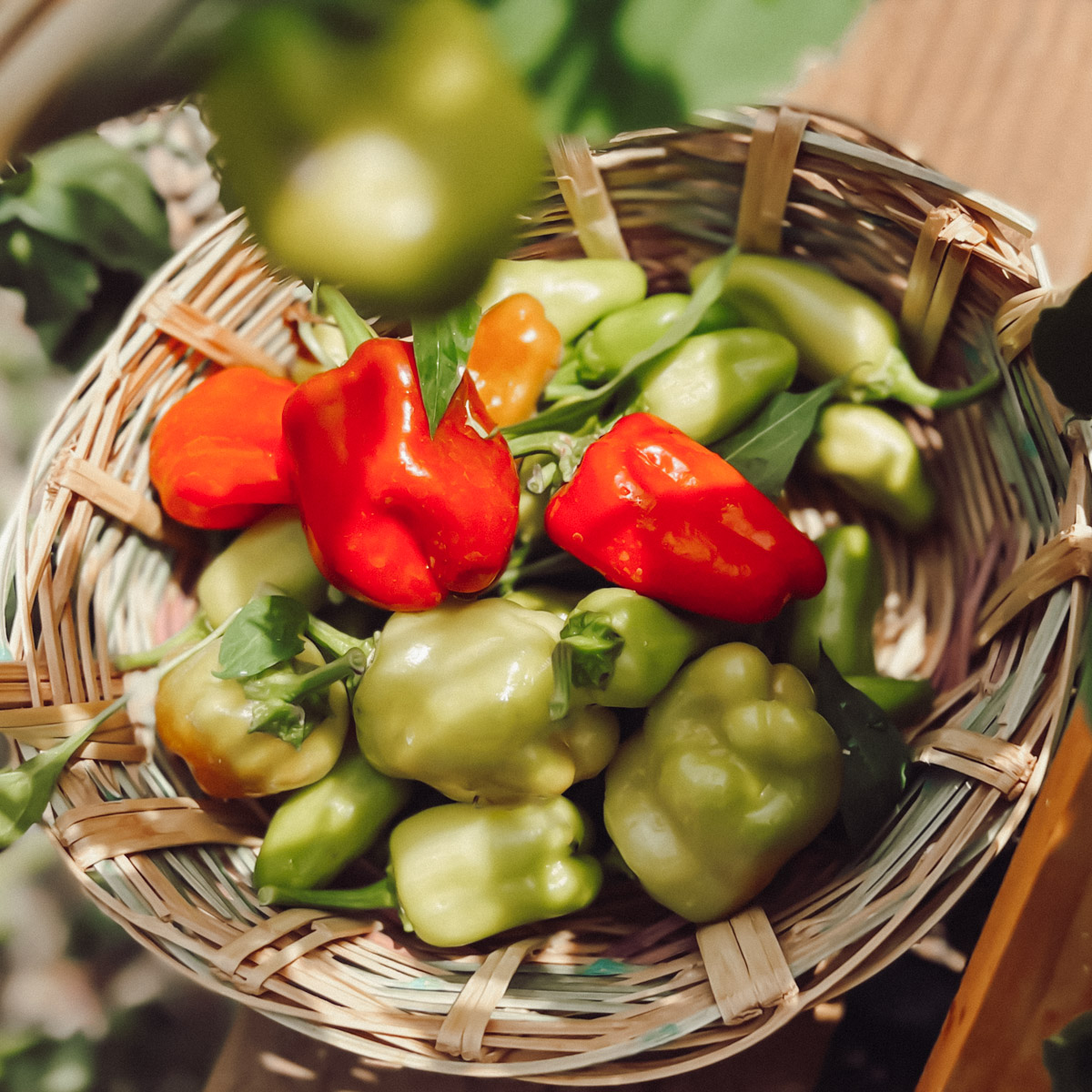Premier Fertilizers for Peppers: Boost Your Harvest Top Quality
Premier Fertilizers for Peppers: Boost Your Harvest Top Quality
Blog Article
Organic Vs. Synthetic Fertilizers: Which Is Best for Supporting Healthy And Balanced Pepper Plants?
In the world of nurturing healthy pepper plants, the option in between organic and synthetic plant foods stands as a crucial choice with significant implications. While both alternatives goal to offer vital nutrients to support plant growth, the subtleties of their effect on the soil, plant wellness, and the atmosphere spark a discussion that echoes throughout the horticulture neighborhood. Understanding the distinctive advantages and potential risks of each fertilizer kind is important for pepper growers looking for to optimize their returns while preserving an eco-conscious and sustainable approach.
Advantages of Organic Fertilizers
Organic plant foods provide an environmentally-friendly and sustainable strategy to nourishing pepper plants, supplying important nutrients without the usage of synthetic chemicals. These all-natural fertilizers are obtained from natural sources such as garden compost, manure, bone meal, and seaweed, advertising soil health and wellness and biodiversity. Unlike synthetic fertilizers, natural options launch nutrients gradually, guaranteeing a constant and balanced supply for pepper plants to flourish.
One substantial benefit of organic plant foods is their capacity to improve dirt framework and water retention. By enhancing soil wellness, organic fertilizers advertise advantageous microbial task, which assists in nutrient uptake by pepper plants. Additionally, organic plant foods reduce the danger of chemical run-off, shielding water sources from contamination and guarding the environment.
Additionally, natural fertilizers contribute to lasting dirt fertility by promoting the growth of beneficial soil microorganisms. These microorganisms help break down natural issue, releasing nutrients in a form that is conveniently accessible to pepper plants. best fertilizers for peppers. By promoting a healthy soil ecological community, natural fertilizers support lasting pepper farming methods that profit both plants and the environment
Drawbacks of Synthetic Plant Foods
Artificial fertilizers, unlike their natural counterparts, pose various downsides when made use of to nurture pepper plants, influencing both plant wellness and ecological sustainability. One significant downside of artificial plant foods is their propensity to seep nutrients from the dirt swiftly. This quick leaching can cause vitamins and mineral imbalances in the soil, causing plants to deal with poisonings or shortages. Furthermore, synthetic fertilizers can harm beneficial dirt microorganisms, such as earthworms and valuable microorganisms, interfering with the dirt environment's equilibrium.
Moreover, the overuse of artificial fertilizers can add to water air pollution. Excess plant foods not absorbed by plants can remove into water bodies, leading to eutrophication, where algae flowers deplete oxygen degrees in the water, harming marine life. Moreover, synthetic plant foods are generally stemmed from useful link non-renewable resources, such as nonrenewable fuel sources, contributing to carbon exhausts and environmental degradation during their manufacturing.
Nutrient Absorption Comparison
When comparing artificial and natural plant foods in terms of nutrient absorption, natural plant foods have the benefit of providing a more balanced and slow-release source of nutrients. Organic plant foods have a variety of macro and micronutrients that are not only helpful for the plants yet also promote healthy soil microbial activity, which helps in nutrient uptake.
Moreover, natural plant foods boost dirt framework and water retention ability, permitting pepper plants to access nutrients more effectively. This enhanced soil high quality assists in origin growth, enabling better nutrient absorption. Synthetic fertilizers, although initially increasing plant growth because of their high nutrient concentrations, may hinder long-term nutrient absorption by degrading soil health in time.
Environmental Effect Considerations

On the other hand, artificial fertilizers, although usually more concentrated and quickly offered to plants, can have destructive impacts on the setting if not used correctly (best fertilizers for peppers). Their manufacturing requires high power inputs, resulting in greenhouse gas exhausts and adding to environment modification. Moreover, the overflow of excess artificial fertilizers can infect water sources, bring about eutrophication and hurting marine environments.
Best Fertilizer Practices for Peppers
When feeding pepper plants, maximizing nutrient uptake and minimizing environmental effect are crucial factors to consider. To attain this, it is important to comply with finest plant food methods customized to the details demands of pepper plants. One crucial practice is to carry out a soil examination prior to using any kind of plant foods. This examination can establish the pH degree of the dirt and recognize find out this here any kind of nutrient shortages, leading you in picking one of the most ideal plant food solution.
Another important method is to fertilize pepper plants at the best time. Normally, peppers gain from obtaining plant food at growing and after that once more when they begin to flower. Over-fertilizing can result in nutrient discrepancies and hurt the plants, so it is important to follow recommended application rates.
Furthermore, choosing a balanced plant food with an NPK proportion that suits pepper plants' needs is fundamental. Inevitably, combining natural and synthetic fertilizers deliberately can help support healthy pepper plants while decreasing environmental effect.
Conclusion

Organic fertilizers offer a lasting and environmentally-friendly strategy to nourishing pepper plants, providing necessary nutrients without the use of synthetic chemicals. Unlike artificial fertilizers, organic choices release nutrients slowly, ensuring a stable and look at here balanced supply for pepper plants to grow.
Artificial plant foods, in contrast to their natural equivalents, present numerous disadvantages when utilized to nourish pepper plants, affecting both plant wellness and ecological sustainability. When contrasting artificial and natural plant foods in terms of nutrient absorption, natural plant foods have the benefit of providing a more balanced and slow-release source of nutrients.Furthermore, organic fertilizers enhance soil framework and water retention ability, permitting pepper plants to accessibility nutrients more efficiently.
Report this page